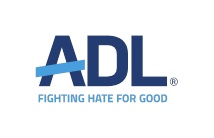NEW YORK (Press Release) — More than a year since claims surfaced of a “stolen” or “rigged” election, and 12 months after the Capitol insurrection, conspiracy theories about the 2020 presidential election are alive and well. These lies have the potential to fuel future domestic extremist attacks, according to a new report from ADL (the Anti-Defamation League).
 For its new report, “A Year After the Insurrection, 2020 Election Lies Continue to Animate the Right,” ADL’s Center on Extremism examined various sources and streams of “stolen election” narratives and analyzed how lies about “rigged” elections have spread across mainstream outlets and social media platforms.
For its new report, “A Year After the Insurrection, 2020 Election Lies Continue to Animate the Right,” ADL’s Center on Extremism examined various sources and streams of “stolen election” narratives and analyzed how lies about “rigged” elections have spread across mainstream outlets and social media platforms.
It also examines three streams of messaging that are currently flooding the right-wing ecosystem with abject falsehoods about the 2020 election: news media, politicians, and social media. These streams are often synergistic, and each tends to amplify the other two.
“There’s a dangerous feedback loop of falsehoods, amplified almost daily by the former president, his allies and right-wing disinformation artists, that has created a highly combustible environment that is ripe for political violence,” said Jonathan Greenblatt, ADL CEO. “That means there’s a very real danger that the proliferation of this conspiratorial rhetoric could lead to further violence against our nation’s institutions or elected leaders and act as a gateway to extremism that threatens marginalized communities.”
ADL’s extremism researchers found that of the 727 people who have been arrested for their actions on January 6, 155 (21%) have ties to a wide range of right-wing extremist groups and ideologies, including the far right Proud Boys, anti-government Oath Keepers, QAnon and white supremacy. Yet even more alarming, ADL found that 79% of the individuals arrested have no overt ties to extremist movements, suggesting that a significant number of seemingly ordinary Americans decided that mob violence was an appropriate means of achieving their political objectives.
Greenblatt added, “Every American – Democrats, Republicans, Independents and unaffiliated voters — should be concerned about the constant stream of misinformation and lies that has the potential to animate the same sort of extremists who stormed the Capitol on Jan. 6, to commit further acts of violence.”
Social Media: Stop the Steal Goes Viral
The report provides new research quantifying social media posts featuring the phrases “stop the steal” or using the hashtag #stopthe steal, as well as tweets linking Democrats or President Biden with either the phrases “rigged election” or “stolen election.”
“In the aftermath of the 2020 election, social media platforms were inundated with content alleging that the election had been stolen,” Greenblatt noted. “The data shows that these conspiracies concerning the elections continue across social media, even more than a year after the presidential election.”
Using machine learning and other tools to isolate tweets spreading the notion of a stolen election, ADL’s research found:
- Between November 3, 2020, and December 13, 2021, ADL identified 200,270 tweets that mentioned the phrases “stop the steal,” “rigged election,” or “stolen election,” or used #stopthesteal in reference to the 2020 presidential election.
- Most of the collected content was shared between November 3 and January 20, with an average of 1,845 posts per day and a peak of 7,147 posts on January 6.
- Following President Biden’s inauguration, there was a drop off in activity referencing these terms. However, there continued to be a steady flow of tweets referencing the “stolen election,” with an average of 170 posts per day between January 20 and December 13, 2021.
Between January 20 and December 13, 2021, there was a total of 675,914 confirmatory interactions for tweets using the phrases “stop the steal,” “rigged election,” or “stolen election” or using #stopthesteal. The number of daily tweets plus “likes” and retweets hit a high of 143,239 on January 14, 2021, but between Biden’s inauguration on January 20 and December 13, there has been an average of 1,404 combined tweets, likes and retweets. During that time span, counts exceeded 20,000 confirmatory interactions five times. Further caveats and implications relevant to ADL’s methodology are contained in the report.